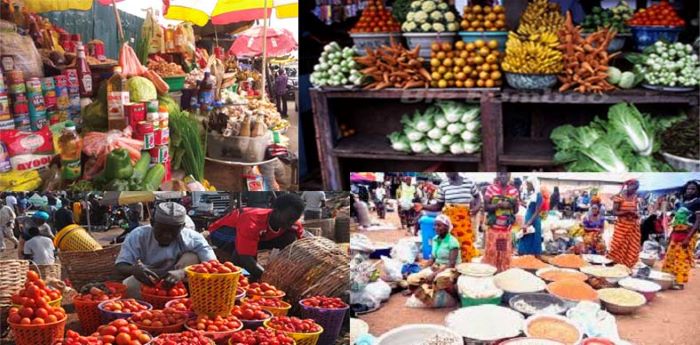Subsidise Agric sector to check rising food inflation, Nigerians urge FG
galloping inflation on staple food in spite of the ongoing harvest
 Stakeholders in the agricultural sector have advocated comprehensive subsidies on fertilisers and inputs to encourage productivity and cut rising cost of staple food.
Stakeholders in the agricultural sector have advocated comprehensive subsidies on fertilisers and inputs to encourage productivity and cut rising cost of staple food.
They said the measure was imperative to enhance farmer access to inputs, value addition and farmer enterprising skills to achieve food security in the country.
The call came against the backdrop of galloping inflation on staple food in spite of the ongoing harvest and palliative measures implemented by the Federal Government, to cushion the effects of rising cost of food items.
According to the National Bureau of Statistics (NBS), the inflation rate rose to 33.88 per cent in October 2024.
It increased by 1.18 per cent from the 32.70 per cent recorded in September 2024, owing to the high cost of fuel, electricity, among others.
The stakeholders, including experts, farmers and government officials, stated this while responding to a survey by the News Agency of Nigeria (NAN) on food inflation in Bauchi, Dutse and Gombe.
A check by NAN correspondents in Dutse and Gombe, showed that prices of food items dropped slightly by about 10 per cent occasioned by the ongoing harvesting season.
High food costs: Traders blame high transportation costs
At Gombe market, a 50 kilogramme bag of local variety rice was sold at N75,000 as against N85,000 in the last four weeks.
Grain also indicated similar decrease in prices in Dutse, Jigawa, as a measure of sorghum sold at N1,800, millet N1,600 and wheat N3,500 as against its old prices of N2,500, N2,300, and N3,500, respectively.
A Gombe-based agronomist, Dr Joseph Kaltungo, said that increased investment in agriculture was necessary to ensure subsidy on inputs to accelerate crop production and check inflation.
He identified insecurity, high cost of petrol and inputs, hoarding, lack of storage facilities and preservation technologies as major factors driving food inflation in spite of the harvesting season.
Kaltungo said that prices of food items normally drop during the harvesting period in the previous years due to enhanced farmer access to cheap and affordable inputs.
“Farmers cannot invest heavily in inputs and labour only to sell their produce cheaply.
“Subsidising inputs will encourage more farmers to cultivate, prevent farmland abandonment and boost productivity,” he said.
Kaltungo, a former Programme Manager, Gombe State Agricultural Development Programme (GSADP), urged the government at all levels to increase investment in agriculture to prevent the food inflation.
Malam Kabiru Saidu, a rice grower, attributed the food inflation to lack of sustainable farmer support services in the country.
He said that agriculture was becoming less attractive to many farmers due to lack of extension services and exorbitant prices of inputs.
“Without support to the farmers, food prices are likely to go up further. Many farmers abandoned their farms this season due to the high cost of inputs and labour.
“Increased support will allow more farmers to cultivate crops, boost supply and ultimately lower prices,” he said.
Corroborating Saidu, Nasiru Halilu said that high cost of transportation negatively affected food commodity prices and triggered inflation.
Halilu, a member of the All Farmers Association of Nigeria (AFAN) in Bauchi, said that transporting farm produce to the markets incurred high expenditure due to costs of petrol, labour and preservation.
He stressed the need for an enabling environment to enable farmers to access subsidise seeds, fertilisers and farming implements.
Also, Dr Abubakar Ibrahim, an agricultural economist in Bauchi, said increased investment in infrastructure and research would fasttrack sustainable transformation of agriculture in the country.
He underscored the importance of policy reforms to stimulate growth of commercial agriculture through mechanisation and improved farmer entrepreneurial skills.
According to him, value chain development will enhance processing, marketing and agricultural insurance.
To enhance food security, the Bauchi state government introduced improved variety seeds to encourage productivity and protect farmers against losses occasioned by the effects of climate change.
Prof. Simon Yalems, Bauchi Commissioner for Agriculture, said the government had rehabilitated its fertiliser blending plant to enhance farmer access to the commodity and encourage productivity.
The gesture, he said, was part of measures adopted to boost food production and control inflation.
Similarly, Dr Nura Ibrahim, the Jigawa Commissioner for Environment and Climate Change, said the state government had earmarked N26 billion for procurement of tractors, planters and other equipment, to fasttrack agricultural development.












